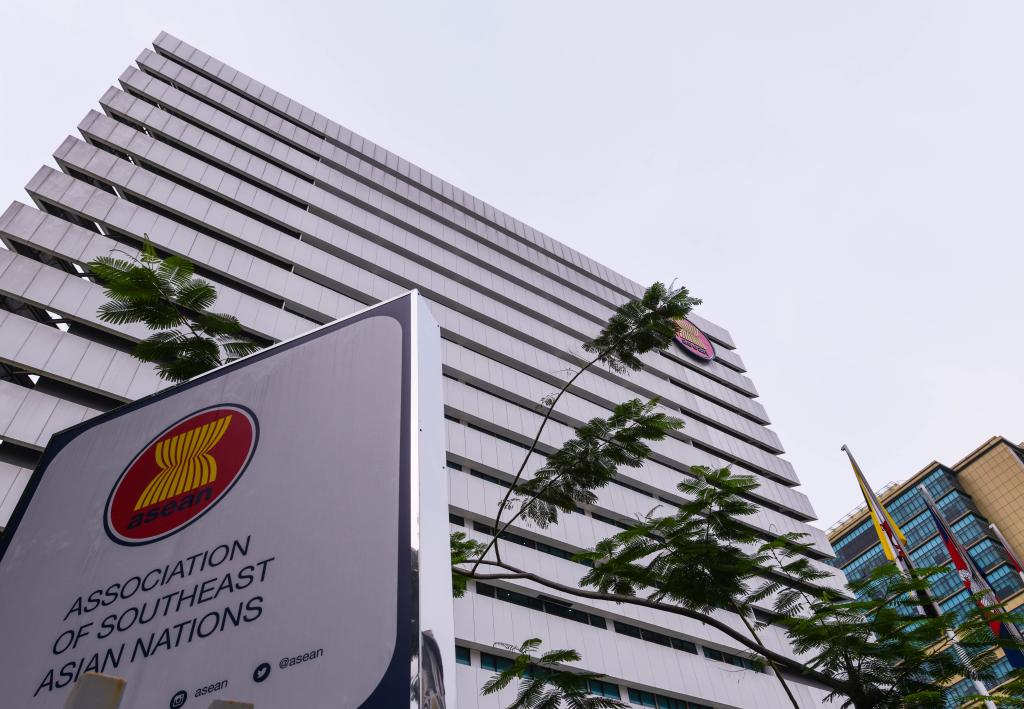U.S.-led IPEF threatens ASEAN centrality, unity: Cambodian academic

Photo taken on Nov. 23, 2021 shows the White House in Washington, D.C., the United States. (Photo by Ting Shen/Xinhua)
- The United States has repeatedly stated that it is working to improve ASEAN centrality, but its recent launch of the IPEF "appears to be yet another strategy to undermine ASEAN centrality," said a Cambodian academic.
- "How can the U.S. claim to work to strengthen ASEAN centrality while paying attention to some ASEAN members and ignoring others? This is a kind of disbanding a group, not a show of solidarity," he said.
PHNOM PENH, May 30 (Xinhua) -- The so-called Indo-Pacific Economic Framework (IPEF) led by the United States is another strategy to undermine the centrality of the Association of Southeast Asian Nations (ASEAN) and to create divisions among the bloc's member states, a Cambodian academic said on Monday.
In an opinion piece published in the English-language newspaper Khmer Times, Seun Sam, a policy analyst at the Royal Academy of Cambodia, said the IPEF, which includes a dozen Indo-Pacific countries, has been designed to provide a counterweight to China's economic clout in the region.
He said the IPEF was joined by seven ASEAN members, with the exception of Cambodia, the 2022 ASEAN chair, Laos, and Myanmar.

Photo taken on Dec. 30, 2021 shows a view of the ASEAN Secretariat in Jakarta, Indonesia. (Xinhua/Xu Qin)
The United States has repeatedly stated that it is working to improve ASEAN centrality, but its recent launch of the IPEF "appears to be yet another strategy to undermine ASEAN centrality," Sam said.
"How can the U.S. claim to work to strengthen ASEAN centrality while paying attention to some ASEAN members and ignoring others? This is a kind of disbanding a group, not a show of solidarity," he added.
Sam said it should be noticed that the Regional Comprehensive Economic Partnership (RCEP) is a free trade agreement (FTA) between the 10 ASEAN member states and their five FTA partners, namely Australia, China, Japan, New Zealand and South Korea.
ASEAN's existing trade blocs and partners "should be valued," Sam said, adding that the United States only works with the countries that have high trade exchanges with it and does not pay attention to those that may require their assistance, and even "accuses them of being too close to their competitors," he said.
There are also worries that the commitments the U.S. government has made concerning the IPEF are more symbolic than practical and its policies may not be durable, he added.
"Overall, it is clear that the U.S. is working to decentralize ASEAN rather than unite it, as the country has always wanted to bring many initiatives into ASEAN, such as AUKUS, Quad and now the IPEF," Sam said.
Photos
Related Stories
- Washington, D.C. residents pay tribute to victims of Uvalde school shooting
- People mourn for victims of school mass shooting in Uvalde, Texas
- Commentary: Washington pitches Indo-Pacific Strategy in vain attempt to reshape Asia
- ASEAN leaders call for open, integrated trade in Asia as Japan woos region over US-led IPEF
- The world needs more than 'beautiful words' from the US
Copyright © 2022 People's Daily Online. All Rights Reserved.










